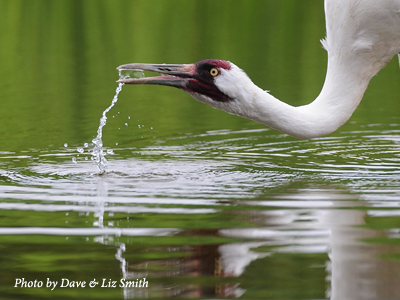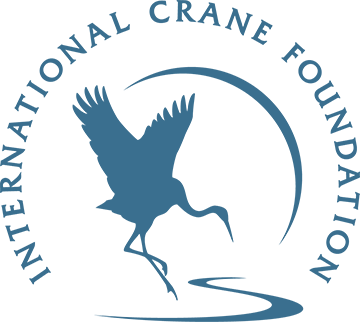 Whooping Cranes may not go to the highest Court in the land, but the International Crane Foundation is resolved to continue to champion for the future of this endangered species. Earlier today, the U.S. Supreme Court announced that they will not hear an important case aimed at securing freshwater for Whooping Cranes in Texas, an ongoing legal battle since 2013.
Whooping Cranes may not go to the highest Court in the land, but the International Crane Foundation is resolved to continue to champion for the future of this endangered species. Earlier today, the U.S. Supreme Court announced that they will not hear an important case aimed at securing freshwater for Whooping Cranes in Texas, an ongoing legal battle since 2013.
The case claimed that the Texas Commission on Environmental Quality, which is responsible for issuing water-use permits in the drought stricken state, violated the Endangered Species Act through their water management practices, including not exercising available emergency powers to protect an endangered species, when fresh water failed to reach the wintering grounds of Whooping Cranes in 2008 and 2009. Last year the Fifth Circuit Court of Appeals in New Orleans threw out a 2013 Texas district court decision which had declared Texas water managers were partially responsible for the 2008-2009 Whooping Crane die-off and had thus violated the Endangered Species Act. That reversal was appealed to the U.S. Supreme Court.
“This multi-year, legal process has helped bring these important issues to the attention of many in Texas and the nation,” notes International Crane Foundation President and water management specialist Dr. Richard Beilfuss. “If we are to secure a healthy coastal ecosystem for both Whooping Cranes and people, there is a critical need for sustainable and equitable water management in the rivers of Texas. We’ve also seen how complex our judicial process can be and how important it is to work together to find solutions whenever we can. While we are deeply disappointed in the decision, we remain steadfast in our commitment to safeguard the future of the Whooping Crane and address their irrefutable need for clean water.”
There were fewer than 20 Whooping Cranes left in the wild in the 1940s. Their numbers have now climbed to about 300 total that winter on the Texas coast. While today’s number is encouraging, it isn’t enough to guarantee the long-term survival of the Whooping Crane, especially given the severity of threats they face, including access to fresh water.
The International Crane Foundation expressed their gratitude to The Aransas Project for their expert work on this lawsuit, and has pledged to continue to work toward ensuring that the timing, duration, and frequency of freshwater inflows are well managed to keep the Guadalupe-San Antonio Basin functioning for the benefit of people and endangered Whooping Cranes alike.
